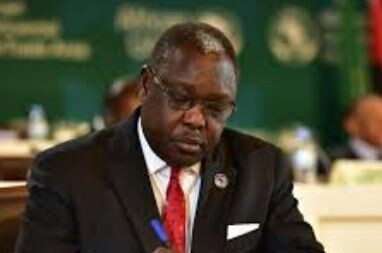The country has seen a disturbing increase in corruption since gaining independence, which not only undermines national security but also threatens its sovereignty.
South Sudan has become a hotbed for money laundering, as evidenced by the recent incident involving a fake dollar machine in Western Equatoria State.
This incident serves as a litmus test for our security agents, highlighting the urgent need for thorough scrutiny of all goods and passengers at our border points and the only airport. Unfortunately, our security forces have failed in their duty to prioritize matters of national security over trivial issues.
The existence of the fake dollar machine and the crackdown on counterfeit currency producers are clear indicators that the country is headed in the wrong direction.
The admission by Cabinet Affairs Minister Elia Martin Lomuro that he accepted $10 million shocked many South Sudanese citizens. This act of corruption, along with numerous others, holds the country hostage and should be officially recognized as a national security threat. Since attaining independence, government institutions have consistently failed to deliver projects and services, leaving South Sudan unable to effectively utilize its resources for development. Lomuro was summoned for questioning by three parliamentary committees regarding the $10 million payment to his ministry, which he subsequently transferred to his account. Instead of benefiting the people of South Sudan, development projects are being diverted into the pockets of individuals. The Dura saga in 2008 was another major scandal involving state leaders, resulting in the loss of $3.6 billion as funds meant for citizens were siphoned off by ghost suppliers.
The release of the names of 75 corrupt government officials has led to a financial crisis and burden without any subsequent arrests. It has become the norm for politicians in the country to engage in corruption with impunity. The corruption within the presidency has enriched former employees in the president’s office, who profit from shadowy deals and projects that solely serve their interests.
In the Nile Petroleum (Nilepet) corruption and scandals, most managing directors are wealthier than the average citizens of the country. These individuals were appointed to loot the country rather than to promote its development.
The establishment of the National Revenue Authority (NRA) was intended to collect the country’s revenues from citizens and utilize them for development. South Sudan should not solely rely on oil revenues but should also focus on non-oil revenues. However, this can only be achieved if our security agencies work diligently for the betterment of our citizens. During my time at the busy border point of Nimule with Uganda, I observed that we are not doing enough to collect revenue at our border points.
The National Communication Authority and the National Revenue Authority should work in tandem to ensure tax collection. Unfortunately, both of these bodies have become entangled in corruption. It is now imperative for President Kiir to publicly declare corruption as a national threat that will have long-lasting detrimental effects on future generations of South Sudan. It is crucial to establish laws and regulations to effectively combat the presence of criminals and cartels within our systems.
People in South Sudan are demanding an explanation from President Kiir regarding the construction of the Bahr el Ghazal Road, which began in 2015. It is alleged that the road contracts were awarded to a Chinese company and signed for millions of dollars.
The road was supposed to connect Juba to Awerial in Lakes State. However, due to widespread corruption and violent robberies, the Chinese company failed to build the road as agreed.
The controversial tycoon Dr. Bol Mel, who has now entered politics, was also given millions of dollars to develop the struggling Juba Bahr el Ghazal. However, no progress has been made, and Dr. Bol Mel’s construction company recently went bankrupt. This raises the question: how long will these corrupt individuals and cartels be allowed to exploit the country’s resources through fraudulent contracts and deals? It leaves the entire nation shocked and seeking answers about corruption in South Sudan.
Some intellectuals argue that the fight against corruption will only be successful when the rule of law is upheld, meaning those involved in corrupt practices are arrested and brought to justice.
Emmanuel Malual Makuach is a South Sudanese journalist and researcher focusing on the impact of social media triggers in the conflicts of 2013 and 2016 in South Sudan. Contact him at malualmakuach77@gmail.com
The views expressed in ‘opinion’ articles published by Radio Tamazuj are solely those of the writer. The veracity of any claims made is the responsibility of the author, not Radio Tamazuj.




